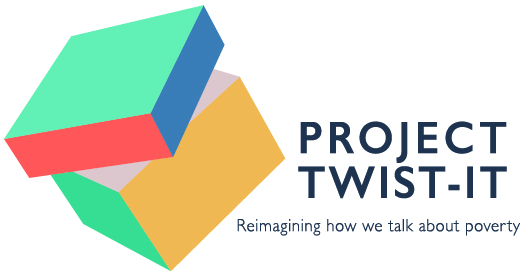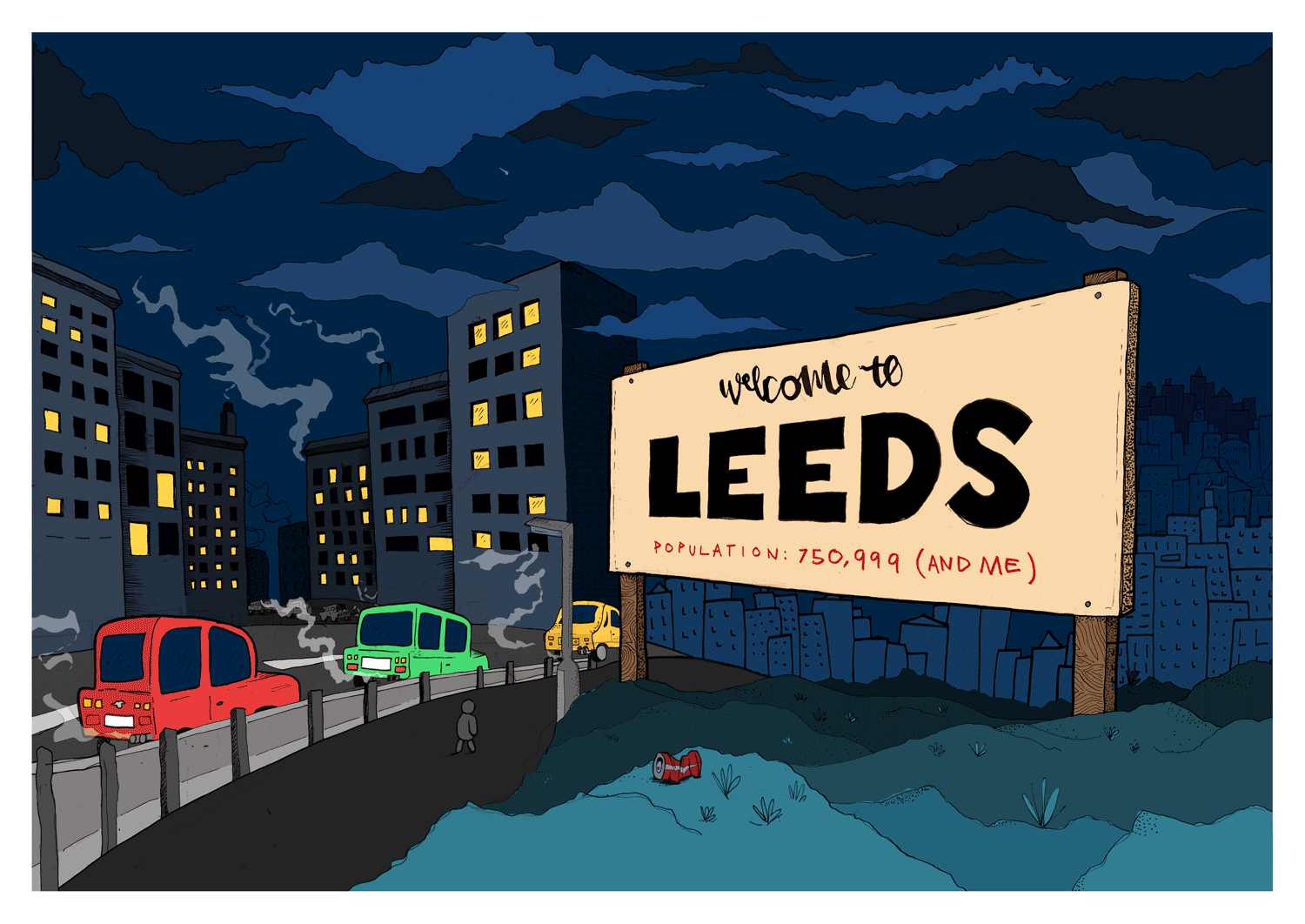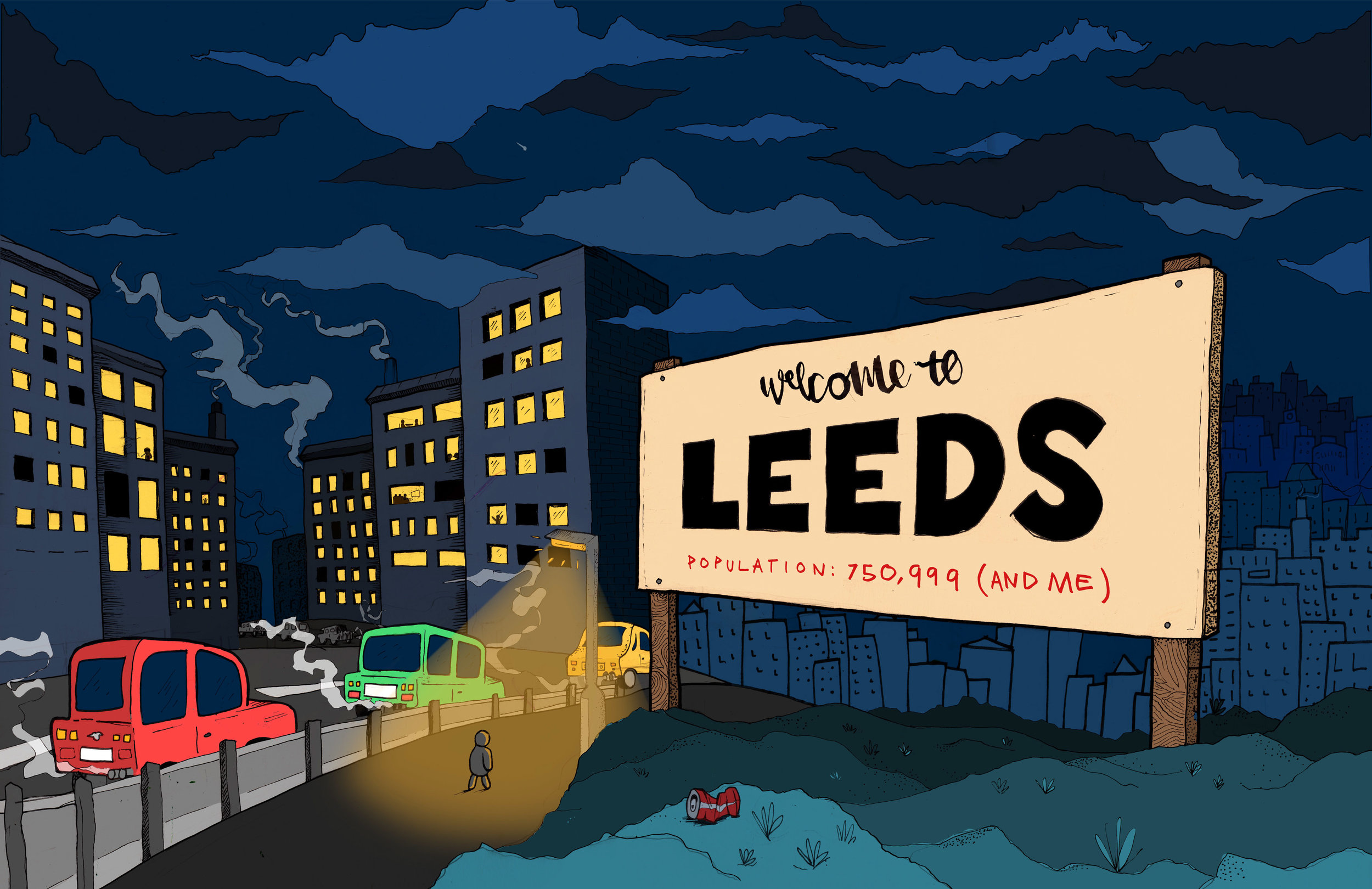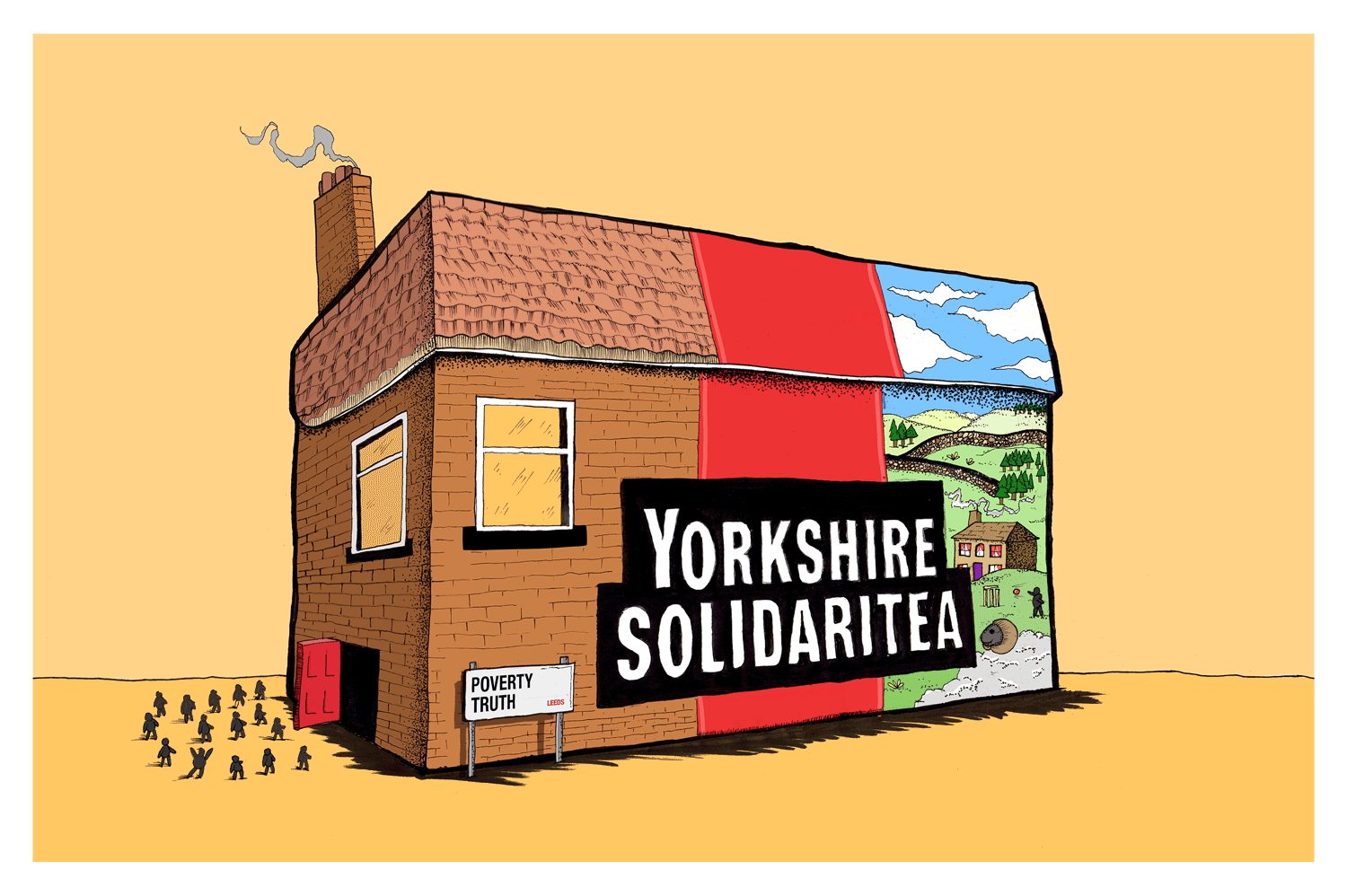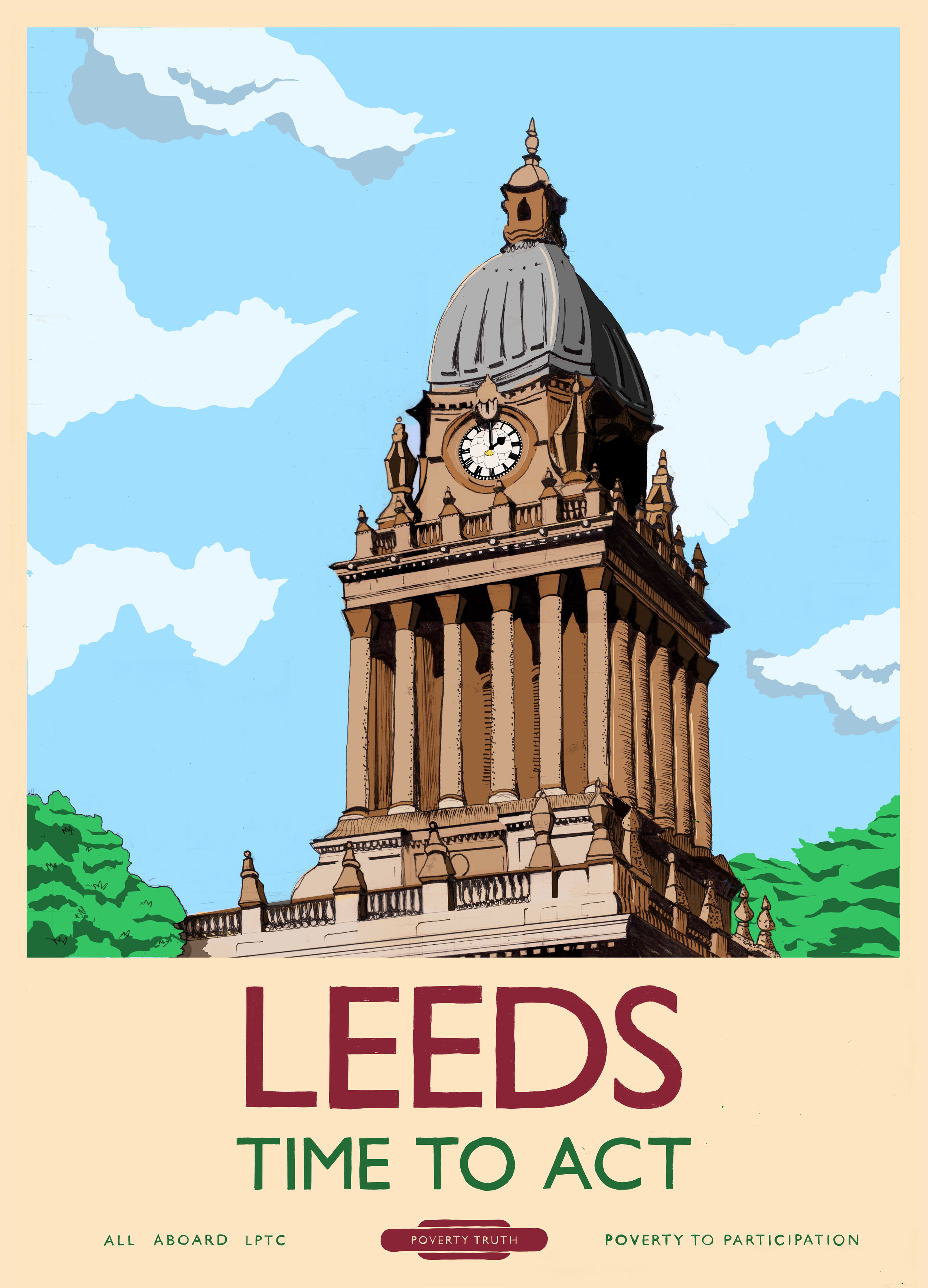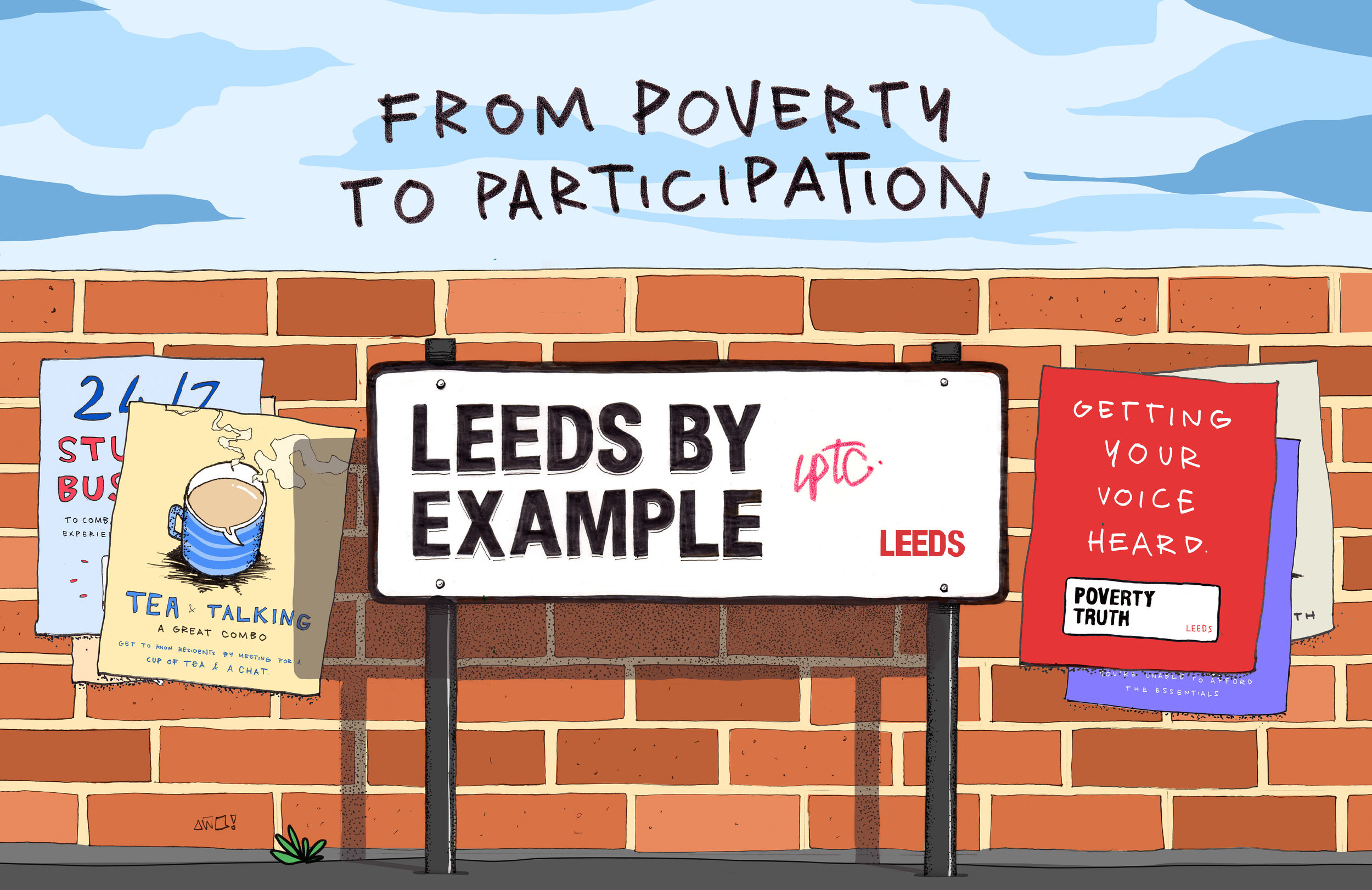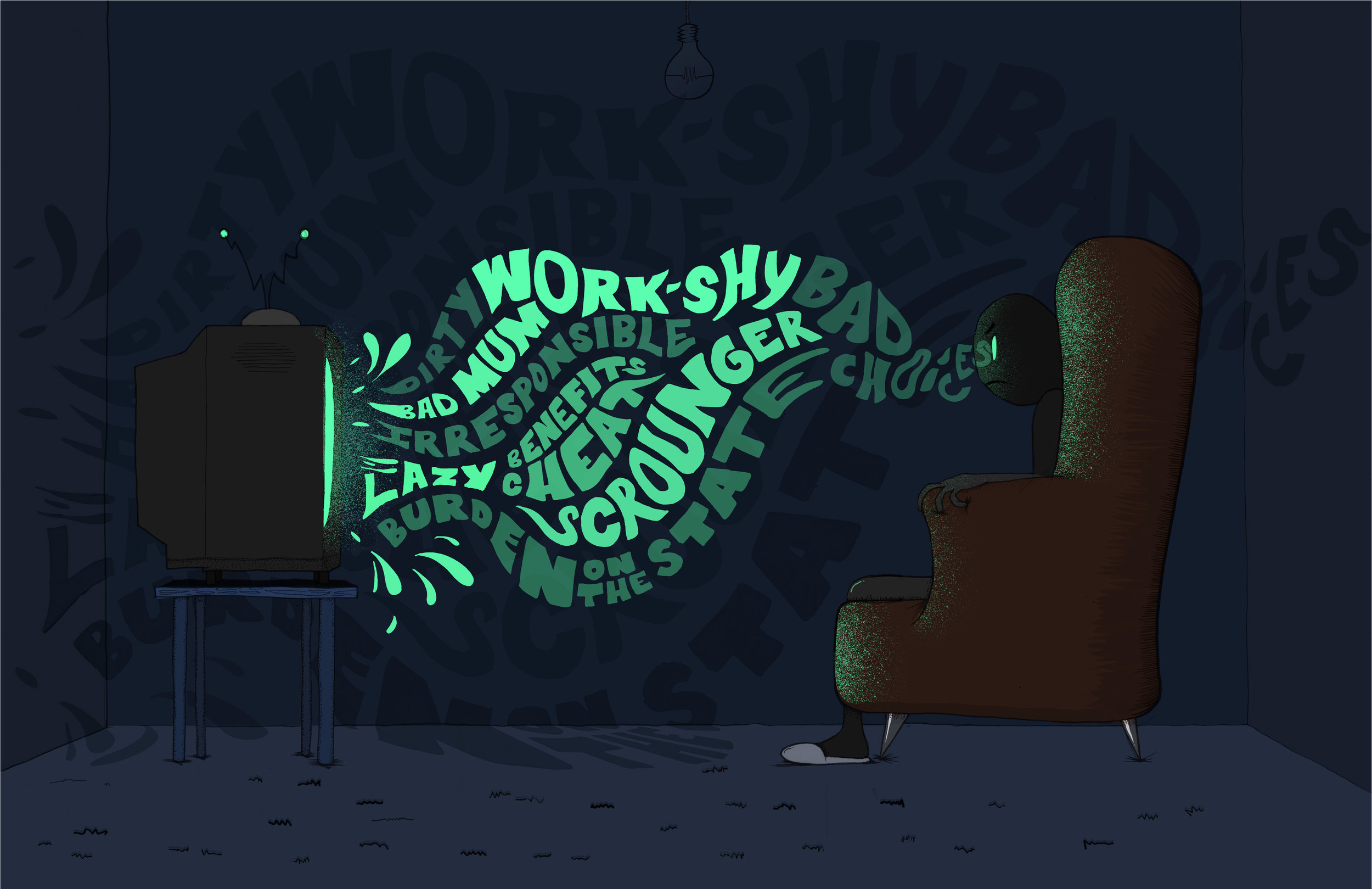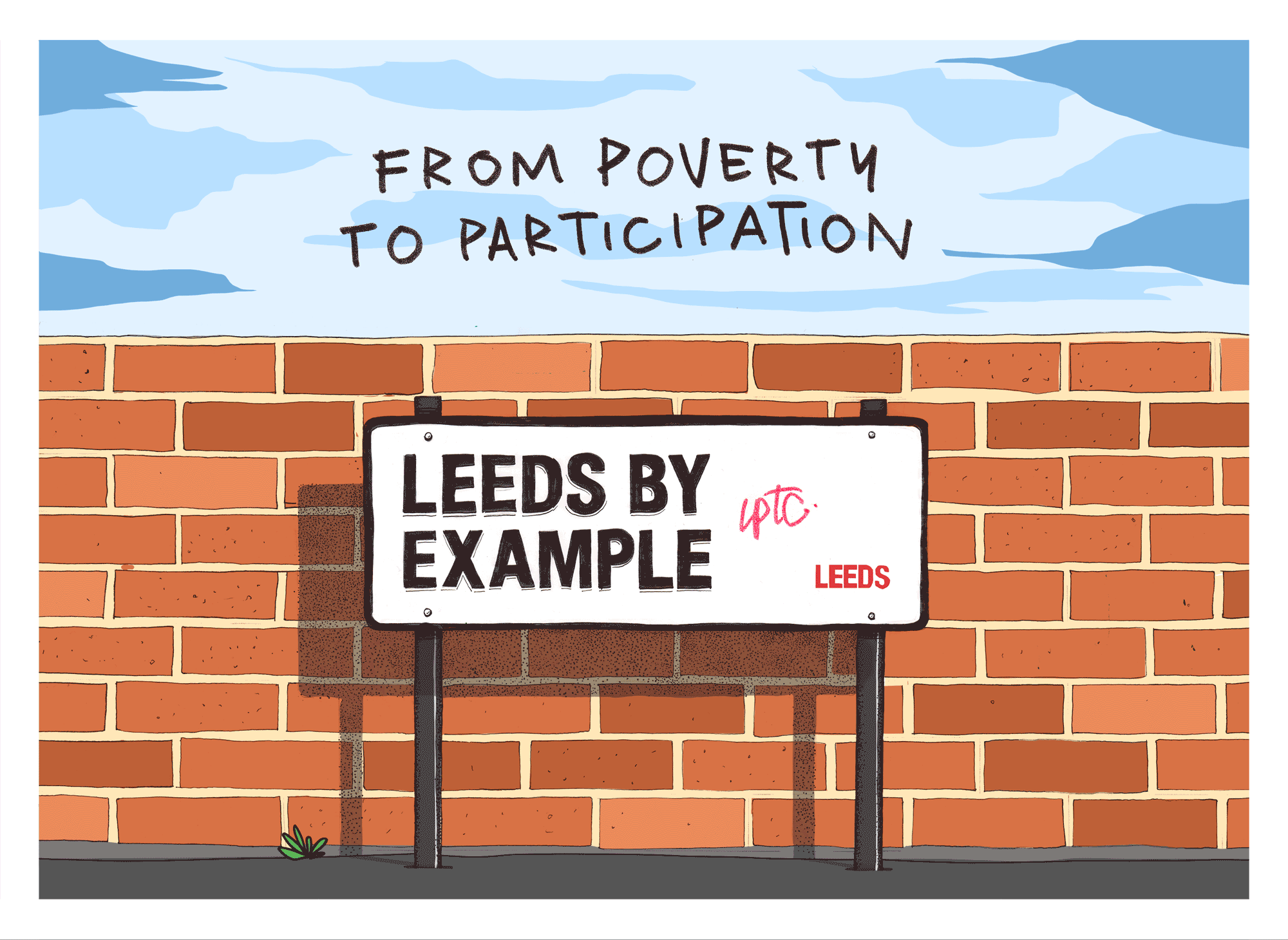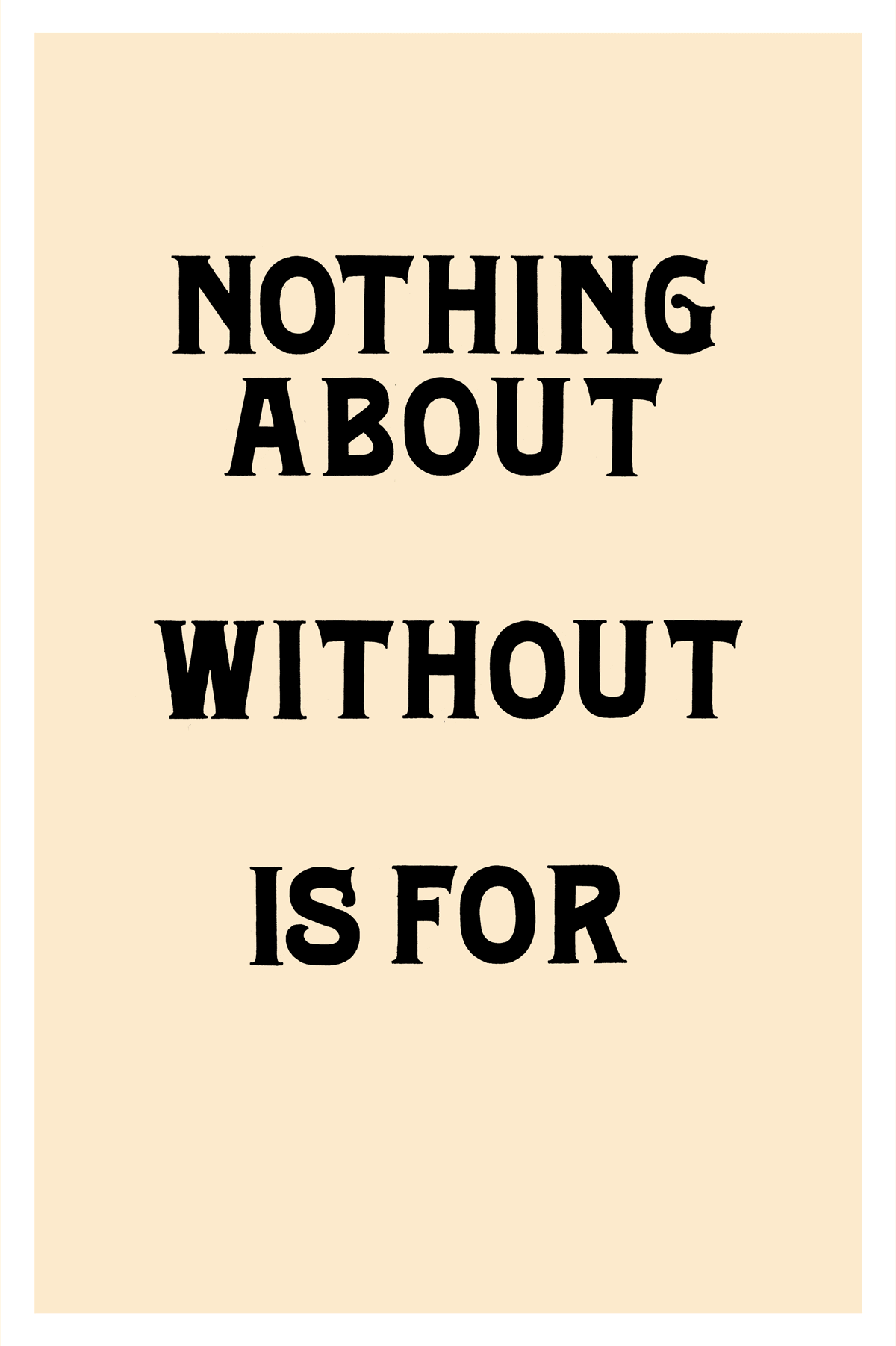Leeds Poverty Truth
Daniel Edmiston – Follow him on Twitter @daniel_edmiston
Leeds Poverty Truth Commission @PTCLeeds
Daniel Edmiston is a Lecturer in Sociology and Social Policy at the University of Leeds. His work explores how social policy affects citizens and whether welfare politics can help tackle poverty and inequality. Here, Daniel discusses a recent project he’s been working on with Leeds Poverty Truth Commission – a local initiative trying to improve the representation of people struggling against poverty in public and political life.
What is Poverty Truth and what are its objectives?
Poverty Truth is an initiative that aims to place people with direct experiences of poverty at the heart of local decision-making that affects their everyday lives. The ethos guiding the poverty truth model and testifying commissioners is the belief that “nothing about us, without us, is for us”. Ultimately, Poverty Truth as a model tries to improve the representation of ‘poverty experts through experience’ in civic life in order to change how we think and act when it comes to tackling financial hardship.
How did the Poverty Truth movement come about?
Over a decade ago, the UK’s first Poverty Truth Commission was established in Scotland. The commission brought together people struggling against poverty and a range of civic and business decision makers across the area. These individuals shared their knowledge and experience, built relationships and came together to explore ways of tackling the causes and effects of poverty more effectively.
What is the scale of Poverty Truth in the UK? Where are initiatives active?
Inspired by the achievements of the Poverty Truth Commission in Scotland, other commissions have since been established across a range of local areas including Salford, Manchester, Lancaster, Wolverhampton and Cheshire. Each commission has its own particular agenda developed by commissioners. At its core though, all Poverty Truth commissions adopt a collaborative model bringing together local stakeholders with a diverse range of life experiences to challenge existing ways of working on poverty-related issues.
Tell us about Leeds Poverty Truth – what work is it engaged in?
Modelled on the achievements of the national Scottish Poverty Truth Commission, Leeds Poverty Truth Commission was the first local initiative of its type and has already completed two full Commission cycles: February 2014 to July 2015 and September 2016 to February 2018. It is currently in the process of coordinating its third commission. Over the years, Leeds Poverty Truth has sought to foreground the voices of low-income citizens and inform public actions and beliefs surrounding poverty and inequality in the process.
Are the negative portrayals of people who are struggling to get by in the media and elsewhere an issue that people involved with Poverty Truth address? If so, in what ways?
Yes! Testifying commissioners involved in Leeds Poverty Truth have done a lot of great work to challenge some of the widespread misconceptions surrounding poverty, unemployment and ‘welfare’. For example, a number of commissioners were recently involved in a documentary that aimed to fight the stigma associated with living in poverty. The most recent commission also launched a Humanifesto to challenge the dehumanising effects of poverty and public perceptions surrounding it.
How important is it to counter the dominant narrative around poverty and ‘welfare’ in the UK?
Despite substantial increases in poverty and inequality over the past four decades, the general public remain remarkably ambivalent towards ‘welfare’ and redistribution in the UK. This ambivalence has been linked to the under-representation of those living in poverty in civic and political life; and enduring misconceptions surrounding the effectiveness, costs and recipients of ‘welfare’. The poverty truth model offers a remedy to this problem by creating a platform for people affected by poverty to challenge and inform public perceptions about who gets what out of the welfare state and why. It also supports low-income citizens to educate the general public about what poverty means for them. As one testifying commissioner said to me: “it’s not always about money. We all have our own different poverties”.
Can you talk about the outputs of Leeds Poverty Truth? What are they? Who is involved?
As the first local initiative, there is a great deal to be learnt from the achievements and operation of Leeds Poverty Truth Commission. The various stakeholders involved offer substantial experience and knowledge that could support others to ensure the voices and interests of those living in poverty are better reflected in the design, implementation and evaluation of public services and policies. Combining academic research with the expertise of testifying commissioners, Leeds Poverty Truth and the University of Leeds have recently come together on a project to distil some of the key lessons of the Poverty Truth model and how these can be taken on board by others hoping to amplify the voice and influence of marginalised citizens.
What do we know about the importance of people with lived experience having their voices heard?
Low-income citizens are poorly represented in public and political life. Initiatives that seek to address this are welcome and necessary. People struggling against poverty need to have their voices heard. This can be an empowering and transformational experience that instils a sense of common belonging and purpose that challenges ‘welfare’ myths and poverty stigma. Crucially though, the sharing of personal stories and insights isn’t enough - it also needs to have a receptive and reformed audience. One that isn’t just interested in ‘consultation’ on the appropriate solutions to poverty, but meaningful dialogue about the root causes of it as well. This demands a change in the approaches to and space in which civic life is conducted: respecting and listening to the experience of marginalised citizens as THE experts on the causes and consequences of disadvantage.
What are the key lessons that have been learned from work at Leeds Poverty Truth?
By bringing people together, the poverty truth model can provide opportunities for people to explore and identify how their experiences are commonly connected to one another in a supportive, non-judgmental environment. It encourages testifying commissioners to recognise the structural and social causes of their situation, as opposed to individualising the problem: “It’s been a real journey to face up to how I feel and cope with living in poverty… I’ve been able to work through my issues of shame, fear and guilt”. This can build confidence to act and speak out and help sustain a movement beyond the life of a commission.
By foregrounding the lived experience of people struggling against poverty, the model also helps foster collaborative working focused on solutions to addressing poverty-related issues. It brings ‘poverty experts through experience’ together and into spaces in which they might otherwise not have been heard. As a result though, less attention is paid to who is ultimately responsible for the underlying decisions leading to poverty and inequality. This risks a tendency towards more modest, remedial forms of action, rather than more radical and dissident forms of collective resistance. This is a fine line to tread and one that Poverty Truth Commissions have to carefully negotiate.
What are the goals going forward?
Find out more
http://www.leedspovertytruth.org.uk
www.unequalcitizens.com
Summary of Workshop 1 [PDF]
Recommendations [PDF]
Humanifesto [PDF]
Beyond the life of a Commission, there is a need to safeguard the momentum of the Poverty Truth model. This requires all previous stakeholders to identify ways to build critical independence and sustainable forms of engagement amongst ‘poverty experts through experience’. This is important because testifying commissioners are keen to keep local decisionmakers and business leaders to account beyond the initiative. In part, sharing best practice and embedding the principles of the Poverty Truth model within organisational and cultural practice across the public and third sector can achieve this. To do so, we’ve published a series of recommendations concerning the individual and structural barriers that inhibit civic engagement of people affected by poverty and what can be done locally to overcome these going forward.
